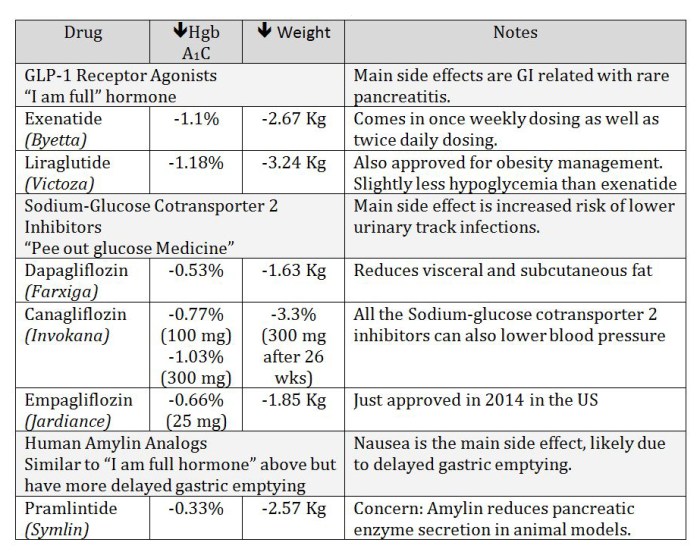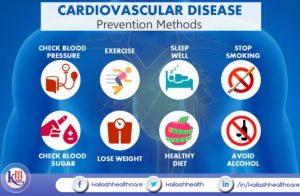
Hold on tight as we dive into the world of Diabetes medication side effects, where the unknown dangers lurk beneath the surface, waiting to be uncovered.
Get ready to explore the dark side of diabetes medications and how they can impact your health in ways you never imagined.
Diabetes Medication Side Effects
Diabetes medications are essential for managing blood sugar levels, but they can also come with various side effects. It’s important to understand the common side effects associated with these medications to make informed decisions about your treatment plan.
Comparison of Side Effects
When comparing different types of diabetes medications, it’s important to note that each class of drugs may have unique side effects. For example, metformin, a commonly prescribed medication for type 2 diabetes, may cause gastrointestinal issues such as diarrhea and stomach discomfort. On the other hand, sulfonylureas, which stimulate the pancreas to produce more insulin, can lead to low blood sugar levels (hypoglycemia) as a side effect.
Duration of Medication Use
The duration of medication use can also play a role in the side effects experienced by individuals with diabetes. For instance, some side effects may diminish over time as the body adjusts to the medication. However, certain side effects may persist or even worsen with long-term use. It’s important for patients to communicate any side effects they experience to their healthcare provider to ensure proper management and adjustment of their treatment plan.
Cosmetic Surgery
Cosmetic surgery refers to procedures performed with the goal of improving a person’s appearance. While these surgeries can enhance physical features and boost self-confidence, they also come with risks and potential complications. It is essential for individuals considering cosmetic surgery to be well-informed about the procedures and their possible effects.
Common Types of Cosmetic Surgeries
- Rhinoplasty (nose job)
-reshaping of the nose - Breast augmentation – enhancing breast size
- Liposuction – removing excess fat from specific areas of the body
- Facelift – reducing wrinkles and sagging skin on the face
Risks Associated with Cosmetic Surgery Procedures
- Infection – risk of developing infections at the surgical site
- Scarring – possibility of visible scars post-surgery
- Complications with anesthesia – adverse reactions to anesthesia used during surgery
- Unsatisfactory results – potential for outcomes that do not meet expectations
Impact on Physical and Mental Health
Cosmetic surgery can have both positive and negative impacts on a person’s physical and mental health. While it may improve self-esteem and confidence, it can also lead to dissatisfaction and body image issues if the results do not meet expectations. It is crucial for individuals to have realistic expectations and to carefully consider the risks and benefits before undergoing cosmetic procedures.
Foot Health

Maintaining good foot health is crucial for individuals with diabetes as they are at a higher risk of developing foot problems due to nerve damage and poor circulation. Proper foot care can help prevent serious complications such as infections and amputations.It is important for individuals with diabetes to regularly inspect their feet for any cuts, sores, or blisters. They should also wash their feet daily with mild soap and warm water, making sure to dry them thoroughly, especially between the toes.
Moisturizing the feet can help prevent dry skin and cracking.
Tips for Maintaining Good Foot Health
- Avoid walking barefoot and always wear comfortable shoes that fit well to prevent blisters and calluses.
- Trim toenails straight across to prevent ingrown toenails.
- Avoid soaking feet in hot water as it can cause burns.
- Regularly visit a podiatrist for foot exams and professional care.
Common Foot Problems in Individuals with Diabetes
- Neuropathy: Nerve damage can lead to a loss of sensation in the feet, making it difficult to detect injuries.
- Ulcers: Poor circulation and nerve damage can cause ulcers that are slow to heal and prone to infection.
- Corn and Calluses: Pressure points from ill-fitting shoes can lead to the formation of corns and calluses.
- Athlete’s Foot: Fungal infections can thrive in the warm and moist environment of diabetic feet.
Heart Disease
Individuals with diabetes are at a higher risk of developing heart disease compared to those without diabetes. This is due to the impact of high blood sugar levels on the cardiovascular system over time.
Relationship between Diabetes and Heart Disease
Diabetes can lead to the development of atherosclerosis, a condition where fatty deposits build up in the arteries, narrowing them and restricting blood flow. This increases the risk of heart attacks and strokes in individuals with diabetes.
Impact of Diabetes Medication Side Effects on Heart Health
- Some diabetes medications can cause side effects such as weight gain and fluid retention, which can contribute to high blood pressure and strain on the heart.
- Certain medications may also affect cholesterol levels, increasing the risk of plaque buildup in the arteries.
- In rare cases, diabetes medications like thiazolidinediones have been associated with an increased risk of heart failure.
Lifestyle Recommendations to Reduce Heart Disease Risk
- Follow a healthy diet low in saturated fats, cholesterol, and added sugars to help manage blood sugar levels and reduce the risk of heart disease.
- Engage in regular physical activity to maintain a healthy weight, improve cardiovascular health, and lower blood pressure and cholesterol levels.
- Quit smoking and limit alcohol consumption to further reduce the risk of heart disease complications.
- Monitor blood sugar levels regularly and work closely with healthcare providers to manage diabetes effectively and prevent complications.
Health Diabetes
Diabetes is a chronic condition that affects how your body processes glucose, leading to high blood sugar levels. It can have a significant impact on a person’s overall health if not managed properly.Managing diabetes effectively is crucial in preventing serious complications such as heart disease, stroke, kidney disease, nerve damage, and vision problems. By monitoring blood sugar levels, following a healthy diet, staying active, taking medication as prescribed, and attending regular check-ups, individuals can reduce the risk of these complications.
Tips for Maintaining a Healthy Lifestyle with Diabetes
- Monitor your blood sugar levels regularly and keep track of them in a journal or app.
- Eat a balanced diet rich in fruits, vegetables, whole grains, lean proteins, and healthy fats.
- Stay physically active by incorporating regular exercise into your routine, such as walking, swimming, or cycling.
- Take medications as prescribed by your healthcare provider and attend all scheduled appointments.
- Avoid smoking and limit alcohol consumption to reduce the risk of complications.
Eating Disorders
Eating disorders can have a significant impact on individuals with diabetes, as they can affect the management of their condition and overall health.
Connection between Diabetes and Eating Disorders
There is a complex relationship between diabetes and eating disorders. Some individuals with diabetes may develop disordered eating patterns, such as skipping meals to control blood sugar levels or engaging in binge eating due to emotional distress related to their condition.
Diabetes Management and Eating Disorders
Managing diabetes becomes more challenging when an individual is also dealing with an eating disorder. Disordered eating behaviors can lead to unstable blood sugar levels, poor nutrition, and complications in diabetes management.
Strategies for Maintaining a Healthy Relationship with Food
- Seek support from healthcare professionals who specialize in both diabetes and eating disorders.
- Practice mindful eating to develop a healthy relationship with food and manage blood sugar levels effectively.
- Avoid restrictive diets and focus on balanced meals that meet the nutritional needs of a person with diabetes.
- Engage in regular physical activity to support overall health and well-being.
- Consider therapy or counseling to address the emotional aspects of living with both diabetes and an eating disorder.
Final Wrap-Up

As we come to the end of this eye-opening journey into the realm of Diabetes medication side effects, remember to always stay informed and vigilant about your health choices.
FAQ Compilation
What are the long-term side effects of diabetes medications?
Long-term use of diabetes medications can lead to issues like kidney damage, nerve damage, and increased risk of heart disease.
Can diabetes medications cause weight gain?
Yes, some diabetes medications are known to cause weight gain as a side effect, which can be challenging for individuals managing their weight.
Are there any natural alternatives to diabetes medications to manage blood sugar levels?
Some people opt for natural remedies like dietary changes, regular exercise, and stress management techniques to help manage their blood sugar levels alongside or instead of medications.





